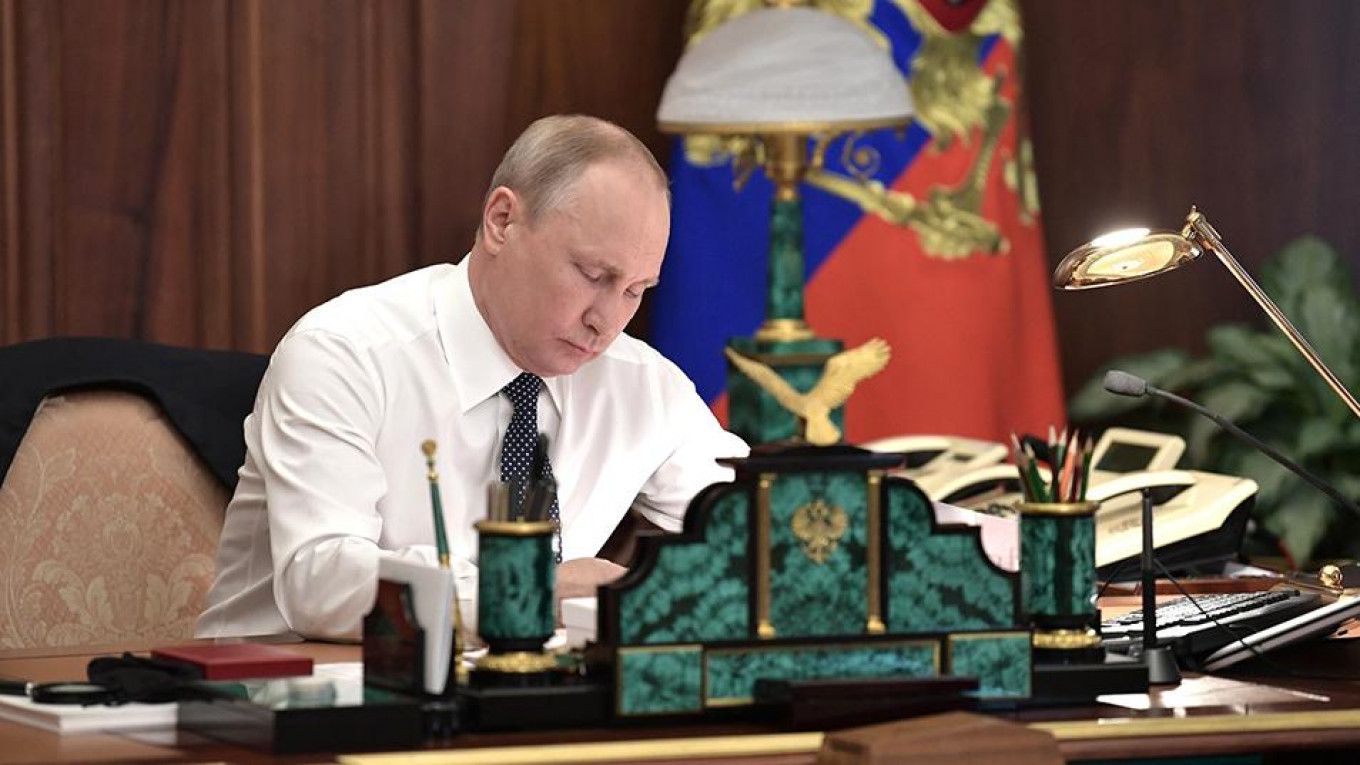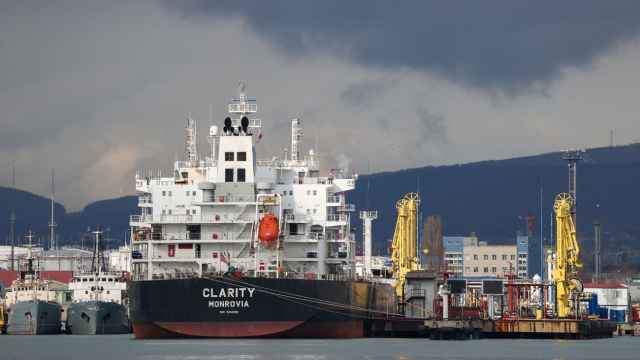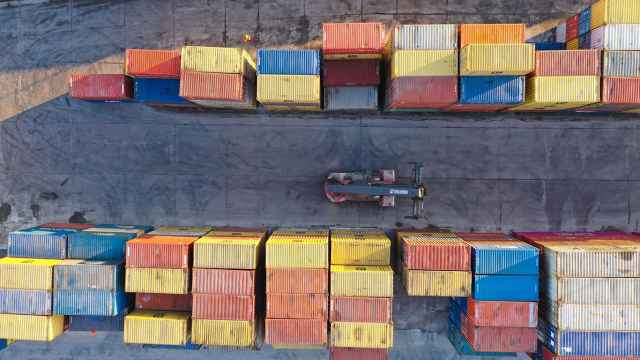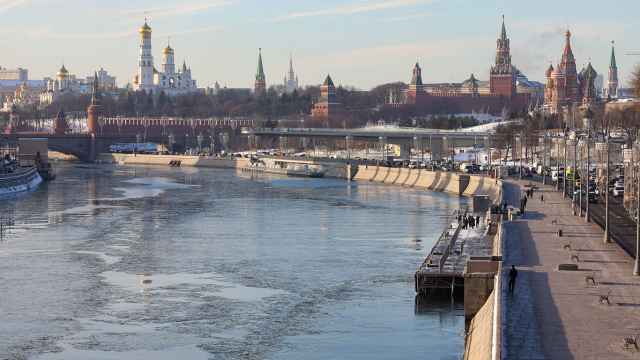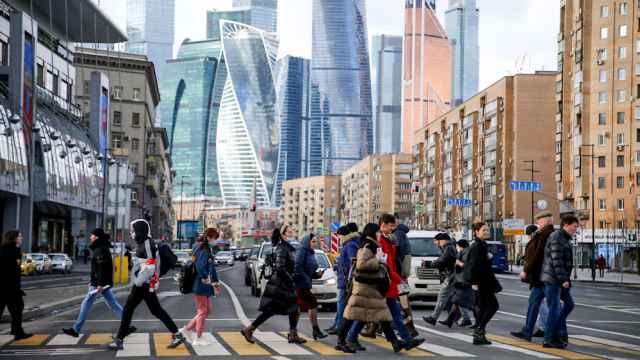Russian President Vladimir Putin on Monday signed into law counter-sanctions legislation that was drawn up by lawmakers in response to U.S. sanctions imposed on Russia in April.
The legislation gives the president, among other things, the power to sever ties with unfriendly countries, and to ban trade of goods with those countries.
However, it has been watered down since it was first conceived by lawmakers in response to the new round of U.S. sanctions on Russian businesses.
Lawmakers initially proposed large-scale restrictions on U.S. goods and services, ranging from food and alcohol to medicine and consulting services.
The law was one of two items of legislation. In the second, lawmakers debated making it a crime punishable by jail for a Russian citizen to comply with the U.S. sanctions.
Russian and foreign business lobbies had said any such law would effectively force firms to choose between doing business with Russia and having dealings with the rest of the world.
Last month Putin said any retaliation against Western sanctions must not hurt the Russian economy or partners that do business in Russia.
A Message from The Moscow Times:
Dear readers,
We are facing unprecedented challenges. Russia's Prosecutor General's Office has designated The Moscow Times as an "undesirable" organization, criminalizing our work and putting our staff at risk of prosecution. This follows our earlier unjust labeling as a "foreign agent."
These actions are direct attempts to silence independent journalism in Russia. The authorities claim our work "discredits the decisions of the Russian leadership." We see things differently: we strive to provide accurate, unbiased reporting on Russia.
We, the journalists of The Moscow Times, refuse to be silenced. But to continue our work, we need your help.
Your support, no matter how small, makes a world of difference. If you can, please support us monthly starting from just $2. It's quick to set up, and every contribution makes a significant impact.
By supporting The Moscow Times, you're defending open, independent journalism in the face of repression. Thank you for standing with us.
Remind me later.


